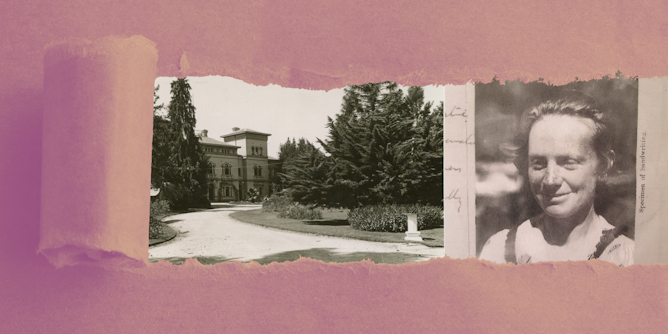|
Shopping in Australia is gloriously straightforward compared with many other places. The price you’re quoted is usually the price you pay.
That’s because the law requires shops and other vendors to display prices that include all “taxes, duties and all unavoidable or pre-selected extra fees”.
But when it comes to home loans, things get murky.
Two accountants, Sander De Groote and Chao Kevin Li report today on a discovery that surprised even them. Your bank might tell you it’s charging 5% interest a year. But that almost always means you’ll end up paying more than 5% per year, because most banks use the ironically named “simple” method of totting up interest.
De Groote and Li reckon banks ought to change their methods, or at least be open about what they’re charging.
|

|
Peter Martin
Economics Editor
|
|

Sander De Groote, UNSW Sydney; Kevin Li, UNSW Sydney
The way banks calculate interest means that Australian borrowers who sign up to pay 5.95% per annum pay something closer to 6.11%.
|

Michael Toole, Burnet Institute; Heidi Drummer, Burnet Institute; Suman Majumdar, Burnet Institute
Australia seems to be focusing on boosters for people aged 75 and over, with its latest recommendations. But that may change.
|

Michelle Grattan, University of Canberra
Most people accept our energy system must move from fossil fuels, especially coal, to renewables as soon as practicable. But there are serious obstacles on the ground – literally.
|

Michael Leach, Swinburne University of Technology
Despite the claim ‘there is no comparable constitutional body like this anywhere in the world’ many countries have similar institutions to the proposed Voice.
|

Martine Maron, The University of Queensland; Megan C Evans, UNSW Sydney; Sophus zu Ermgassen, University of Oxford
Nature positive is the new rallying cry to reverse environmental decline. But it could easily become greenwash – if we’re not careful.
|

Wendy Goff, Swinburne University of Technology; Anne Rohde, Swinburne University of Technology; Bin Wu, Swinburne University of Technology
By the time children start school ‘they have the rudiments of adult swearing’, including about 40 taboo words.
|

Dr Alison Watts, Southern Cross University
Alison Watt’s grandmother was diagnosed with ‘puerperal insanity’ and institutionalised not long after giving birth to her father. He didn’t meet her – or know she was alive – until his early 20s.
|
Politics + Society
|
-
Mark Stevenson, The University of Melbourne; Jason Thompson, The University of Melbourne
Road deaths have remained stubbornly high in Australia over the past decade. Do we have the right strategies in place to address the problem?
-
Tamsin Phillipa Paige, Deakin University
Because reform of the current UN Charter is off the table, the only avenue left is to dissolve the charter and draw up a new treaty that limits or abolishes the power of the veto.
-
Michelle Grattan, University of Canberra
While it’s possible Frydenberg, 52, might consider running in the election after next, it would seem unlikely. The 2025 election was the logical time to try for a comeback bid
-
Michelle Grattan, University of Canberra
In this podcast, ANU Vice Chancellor and astrophysicist Brian Schmidt joins The Conversation to discuss the challenges universities are facing
-
Annie Te One, Te Herenga Waka — Victoria University of Wellington
Te Pāti Māori was born out of protest. After almost two decades, the party is carving out a political presence beyond its traditional base of support.
|
|
Health + Medicine
|
-
Rachael Sharman, University of the Sunshine Coast; Michael Nagel, University of the Sunshine Coast
Teachers are reporting a perceived lack of social skill development in children and teens. How might excessive screen time affect this development?
-
Shalini Arunogiri, Monash University; Anthony Hew, Monash University
The absence of oversight may mean potential harms associated with zero-alcohol products go unrecognised.
|
|
Science + Technology
|
-
Ellen K. Mather, Flinders University
Evolutionary biology and the fossil record reveal a great deal about the origins of chickens and eggs.
|
|
Environment + Energy
|
-
Cooper Schouten, Southern Cross University
The Varroa mite is here to stay. This will have wide-ranging impacts on beekeeping and the crops that rely on honey bee pollination in Australia.
-
Mark Howden, Australian National University; Frank Jotzo, Australian National University; Ken Baldwin, Australian National University; Kylie Catchpole, Australian National University; Kylie Walker, Australian National University; Lachlan Blackhall, Australian National University
We’ve wasted a lot of time delaying climate action. As the damage becomes ever clearer, it’s time to accelerate the transition.
-
Meryl Larkin, Southern Cross University; David Harasti, Southern Cross University; Kirsten Benkendorff, Southern Cross University; Stephen D. A. Smith, Southern Cross University; Tom R Davis
After a chance discovery in the lab, this team used IVF to make hundreds of coral babies for restoration projects in New South Wales. So far the IVF babies are doing well in the wild.
|
|
Arts + Culture
|
-
Kate Pattison, RMIT University
Taylor Swift is maybe the biggest pop star in the world right now - but how did she get so famous, and how does she remain relevant to a younger audience?
|
|
Books + Ideas
|
-
Georgia Phillips, University of Adelaide
Perception and reality collide when a mother and daughter are compelled to live in the shadow of a monstrous artist.
|
|
| |
|
|
|
NIDA
Kensington NSW, Australia
•
Full Time
|

|
|
|
|
| |
| |

|
| |
| |
| |
Featured Events, Courses & Podcasts
|
View all
|
|
1 January 2023 - 7 October 2026
•
|

|
6 July - 6 October 2023
•
|

|
11 - 12 October 2023
•
Sydney
|

|
19 - 20 October 2023
•
South Bank
|

|
|
|
|
| |
| |
| |
| |
| |
|
|